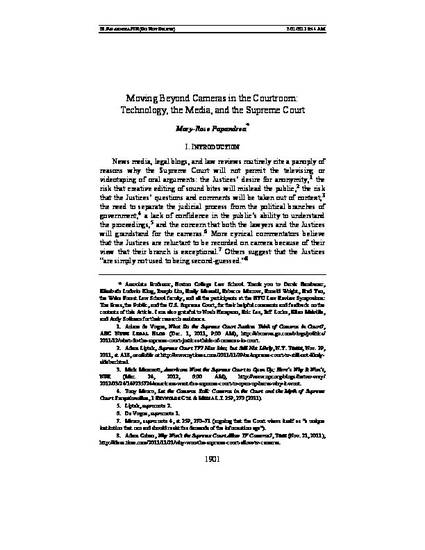
Article
Moving Beyond Cameras in the Courtroom: The Supreme Court, Technology, and the Media
Brigham Young University Law Review
Document Type
Article
Publication Date
2-21-2013
Disciplines
Abstract
From the introduction:
News media, legal blogs, and law reviews routinely cite a panoply of reasons why the Supreme Court will not permit the televising or videotaping of oral arguments: the Justices’ desire for anonymity , the risk that creative editing of sound bites will mislead the public , the risk that the Justices’ question s and comments will be taken out of context , the need to separate the judicial process from the political branches of government, a lack of confidence in the public’s ability to understand the proceedings, and the concern that both the lawyers and the Justices will grandstand for the cameras. More cynical commentators believe that the Justices are reluctant to be recorded on camera because of their view that their branch is exceptional. Others suggest that the Justices “are simply not used to being second-guessed.”
Citation Information
Mary-Rose Papandrea. "Moving Beyond Cameras in the Courtroom: The Supreme Court, Technology, and the Media" Brigham Young University Law Review Vol. 2012 Iss. 6 (2013) p. 1901 - 1952 Available at: http://works.bepress.com/mary-rose_papandrea/43/
